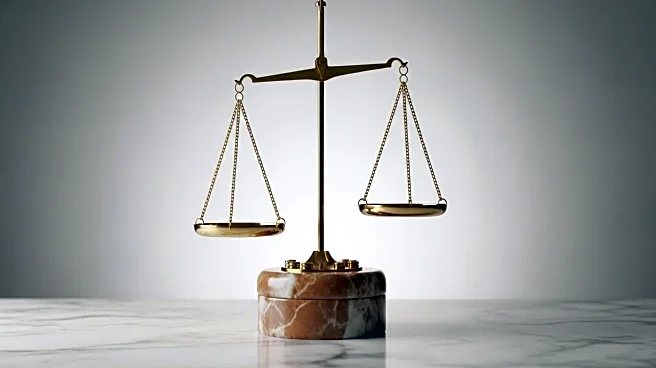What's Happening?
Kevin Hassett, Director of the National Economic Council, has emphasized the importance of maintaining the Federal Reserve's independence from political influence, including from President Trump. Hassett is on President Trump's shortlist to potentially replace Federal Reserve Chair Jerome Powell, whose term ends in 2026. This comes amid President Trump's pressure on Powell to cut interest rates, raising concerns about the White House's influence over the central bank. Hassett's comments align with a broader bipartisan agreement on the necessity of central bank independence to prevent inflation and economic instability. Treasury Secretary Scott Bessent has also called for a review of the Federal Reserve to ensure its independence, highlighting concerns about 'mission creep' and 'institutional bloat.'
Why It's Important?
The independence of the Federal Reserve is crucial for maintaining economic stability and preventing inflation. Hassett's stance reflects a significant concern among policymakers and economists about the potential consequences of political interference in monetary policy. If the Federal Reserve were to lose its independence, it could lead to decisions that prioritize short-term political gains over long-term economic health, potentially resulting in inflation and economic hardship for consumers. The debate over the Fed's independence is particularly relevant as the U.S. faces economic challenges, including lower-than-expected job growth, which complicates the Fed's upcoming rate cut decision.
What's Next?
The Federal Reserve's next rate cut decision is scheduled for September 17, amid ongoing discussions about its independence. President Trump's shortlist for the next Fed chair includes Kevin Hassett, Federal Reserve Governor Christopher Waller, and former Federal Reserve Governor Kevin Warsh. The selection process will likely continue to spark debate about the balance between political influence and economic independence. Additionally, Stephen Miran's potential appointment to the Federal Reserve Board of Governors has raised concerns about maintaining independence, as he has indicated he may not resign from his White House role immediately if confirmed.
Beyond the Headlines
The broader implications of this debate extend to the ethical and governance standards of U.S. institutions. Ensuring the Federal Reserve's independence is not only a matter of economic policy but also of maintaining trust in the country's financial systems. The ongoing discussions highlight the need for clear boundaries between political agendas and economic stewardship, which are essential for long-term national stability.










